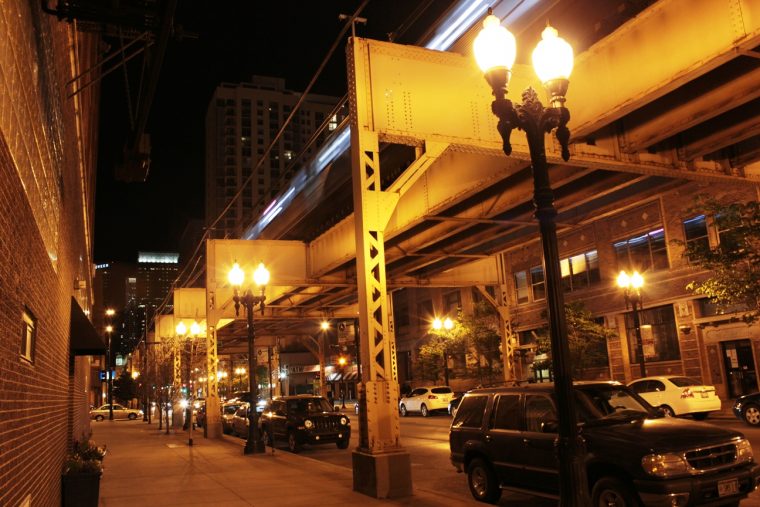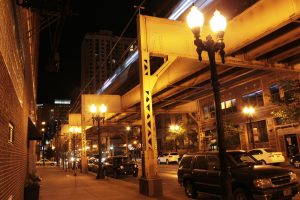
Things in Chicago are about to get a little bit brighter!
Hailed as “one of the largest municipal lighting modernization programs in the country,” the Chicago Infrastructure Trust (CIT) Monday issued a request for proposals (RFP) from private-sector firms for its Smart Lighting Project.

Photo by Pedro Henrique Ponchio is licensed under CC BY 2.0
The proposal will replace 85 percent – or more than 345,000 – of the city’s outdoor lights. It would replace almost all of the city’s street, alley and park lights over a four-year period.
The RFP calls for switching the city’s current high-pressure sodium lamps for much more efficient LED lights that are expected to last three times longer than the current lights.
In addition to increased safety for Chicago residents – both motoring and pedestrian traffic – the project also is expected to create jobs in the community while saving the city money through reduced electricity use and utility costs.
The RFP was issued by the CIT in coordination with the Chicago Department of Transportation, the Department of Innovation and Technology and the Park District. The CIT was established in 2012 by Chicago Mayor Rahm Emanuel as a means of securing alternative innovative financing for infrastructure projects. That is accomplished by attracting private-sector capital to projects such as the Smart Lighting Project. The investment by the private sector means these types of projects can be completed quicker and at no cost to taxpayers. City funds that might have been used on such a project can instead be directed toward other necessary projects.
The Smart Lighting Project is another example of how local governments are collaborating with the private sector to leverage funding and private-sector expertise for necessary infrastructure projects that otherwise would have been cost-prohibitive. It’s a smart – and frugal – way of securing alternative financing and project delivery for projects that can improve the quality of life for the city’s residents.
